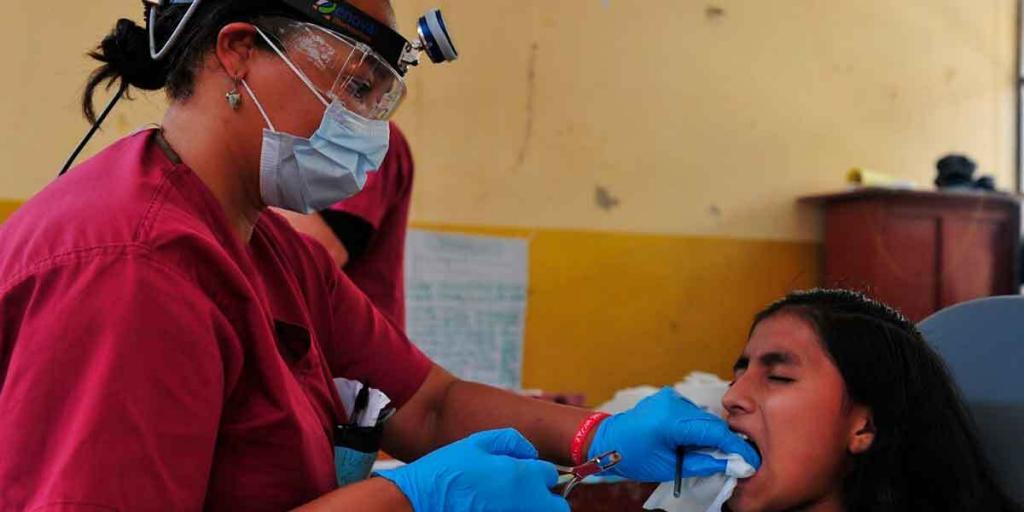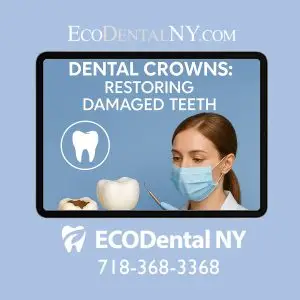Facts: Every year, more than 5 million wisdom teeth extractions are performed.
Wisdom teeth are the last teeth at the back of the mouth. They are also known as the third molars and are four in number. They are so-called because they are always the last to grow, compared to other teeth.
An impacted wisdom tooth is one that is crooked uneven. Such teeth grow at an angle that results in damage to the jawbone and adjacent teeth. The teeth can also destroy the skin within the mouth, allowing bacteria to build up and cause infection.
Impacted wisdom teeth develop like other teeth but take time to come out. Some individuals have small jaws that cause overcrowding of teeth, leaving little or no space for the wisdom teeth to grow. The tooth may also get blocked by the gum itself or the jawbone, causing uneven development.
Taking care of impacted wisdom teeth is essential for eliminating the complications that come with them.
The primary symptom is tender gums around the tooth. Others include an abscess or infection. You may also experience pain around the tooth, bad breath after eating, and constant headaches.
The impacted tooth may also cause further complications such as gum inflammation, cavities, cellulitis, crowding, and oral cysts. In rare circumstances, the infection may travel to other parts of the body and result in airway obstruction and death.
Treatment Options
Dentists always use various methods to describe the complexity of an impacted wisdom tooth. One way is through determining the direction of the impaction. For instance, the tooth is said to have mesial impaction if it is angled forward and distal impaction if it is angled backward, towards the throat.
There is also vertical and horizontal impaction, which mean that the tooth is angled upward and sideways respectively. The mode of treatment is chosen based on the type of impaction.
In some cases, the dentist will recommend that the patient keeps the impacted teeth, especially if they are not causing any discomfort. If this happens, the dentist guides you on the best way to care for the teeth to avoid complications.
Individuals with large jaws are often instructed to keep their impacted teeth because there is enough room for proper eruption of the teeth. For some individuals, this is not possible since keeping the teeth may result in serious problems.
If you cannot keep the teeth, you will need to get them extracted at a dental facility. This can be an ordinary extraction or surgery. Surgical removal of the teeth is carried out when the teeth are almost fully developed. This is when most patients are in their late teens or early twenties.
Impacted teeth surgery is carried out in two ways. One is when all the four wisdom teeth are removed under local anesthesia. The other method involves extracting the teeth on one side of the mouth, then the rest after 3 to 6 months. The procedure is carried out under local anesthesia.
Extracting wisdom teeth is more challenging than other tooth extraction processes. You need a specialized dentist with specialized equipment to carry out the procedure. Often, the cost of extraction varies depending on the type of impaction, the dentist’s experience, and the kind of insurance plan you have.
Pain Management
Impacted wisdom teeth surgery is associated with pain, numbness and a risk of bleeding and swelling. The risk is often higher for older individuals whose jawbone is wholly fused with their teeth.
Your dentist will highlight the dos and don’ts after the procedure. Taking your medications as [prescribed by the doctor will facilitate faster recovery. If the wound does not heal properly, pain and inflammation may continue to disturb you and this can result in an infection.
To Extract or Not to Extract?
The decision to extract your impacted wisdom teeth or not depends with your dentist. You will undergo a visual examination using x-ray and other digital procedures to establish the need to extract.
If you are in pain, it is evident that the impacted tooth may have affected the nerves and need to be removed. Since the process is painful, the dentist will use heavy sedation to ensure that you do not experience a lot of discomfort.
You might also need to get stitches done after the extraction. These stitches may dissolve on their own or the dentist may remove them after a few days. For faster recovery, you will be advised to maintain proper oral hygiene.
In Closing
When it comes to impacted wisdom teeth, you do not need to wait until it is too late to visit the dentist. The more you delay, the higher the chances of developing complications that need to be surgically corrected.




